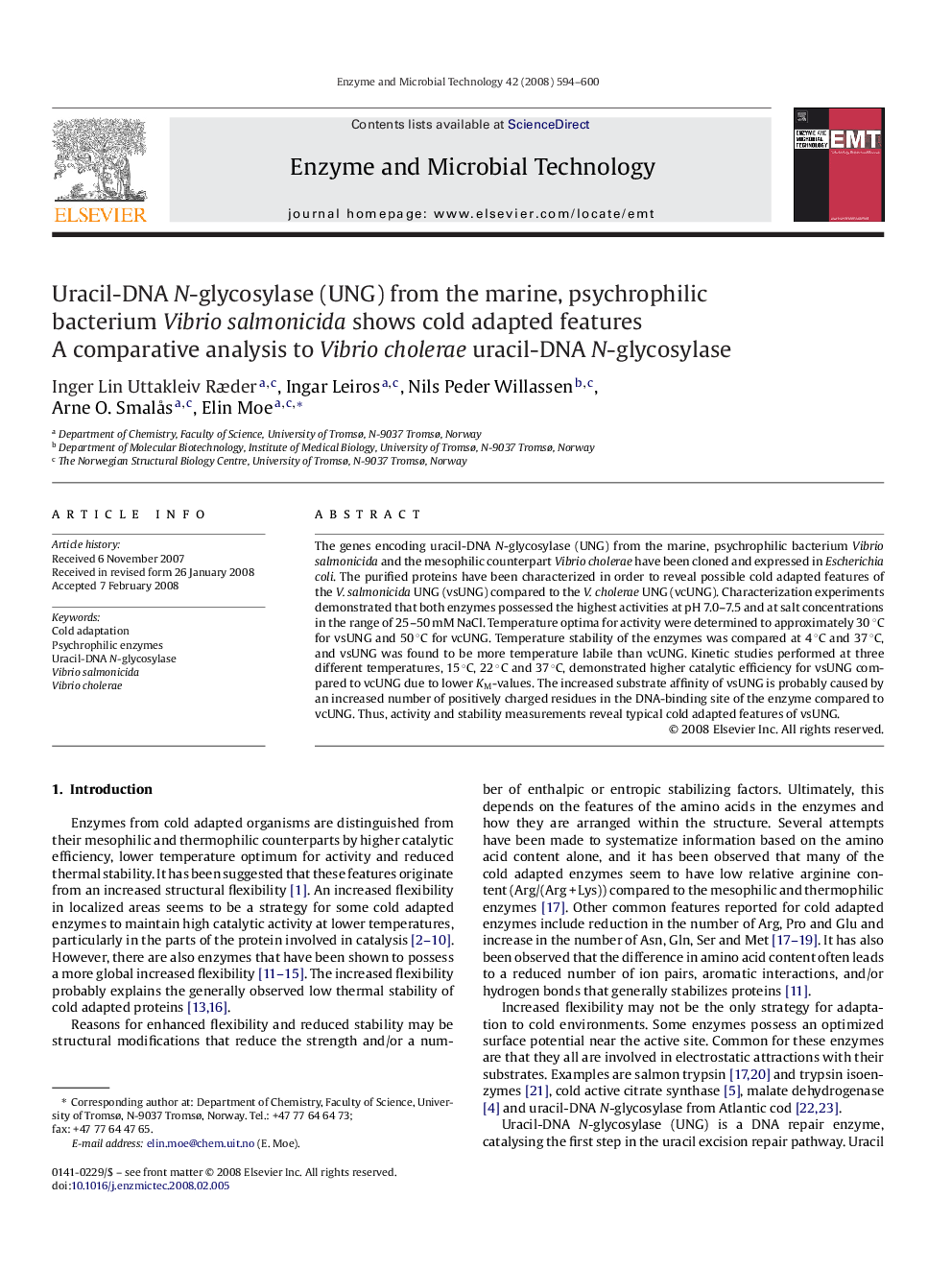| Article ID | Journal | Published Year | Pages | File Type |
|---|---|---|---|---|
| 17785 | Enzyme and Microbial Technology | 2008 | 7 Pages |
The genes encoding uracil-DNA N-glycosylase (UNG) from the marine, psychrophilic bacterium Vibrio salmonicida and the mesophilic counterpart Vibrio cholerae have been cloned and expressed in Escherichia coli. The purified proteins have been characterized in order to reveal possible cold adapted features of the V. salmonicida UNG (vsUNG) compared to the V. cholerae UNG (vcUNG). Characterization experiments demonstrated that both enzymes possessed the highest activities at pH 7.0–7.5 and at salt concentrations in the range of 25–50 mM NaCl. Temperature optima for activity were determined to approximately 30 °C for vsUNG and 50 °C for vcUNG. Temperature stability of the enzymes was compared at 4 °C and 37 °C, and vsUNG was found to be more temperature labile than vcUNG. Kinetic studies performed at three different temperatures, 15 °C, 22 °C and 37 °C, demonstrated higher catalytic efficiency for vsUNG compared to vcUNG due to lower KM-values. The increased substrate affinity of vsUNG is probably caused by an increased number of positively charged residues in the DNA-binding site of the enzyme compared to vcUNG. Thus, activity and stability measurements reveal typical cold adapted features of vsUNG.
